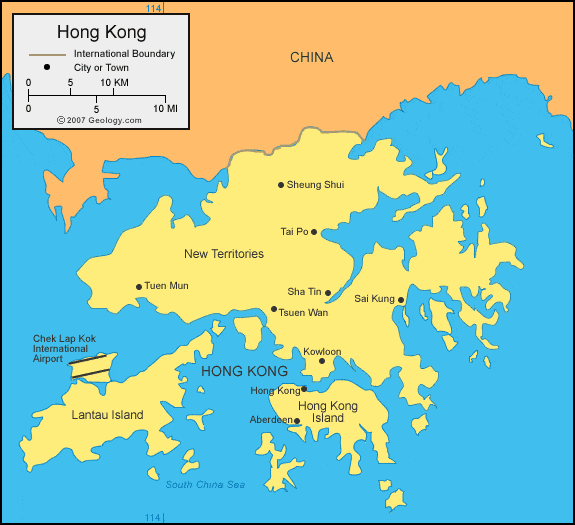Australia Suspends Extradition Treaty with Hong Kong | 10 Jul 2020
Why in News
Recently, Australia has suspended its extradition treaty with Hong Kong in response to a new national security law imposed by China.
- The extradition treaty was in place since 1993.
Extradition
- Extradition is the formal process of one state surrendering an individual to another state for prosecution or punishment for crimes committed in the requesting country's jurisdiction.
- It is generally enabled through a bilateral or multilateral treaty.
- The legal basis for extradition with countries with whom India does not have an Extradition treaty is provided by Section 3 (4) of the Indian Extradition Act, 1962.
Background
- Hong Kong was formerly a British colony and was handed over to mainland China in 1997, becoming one of its Special Administrative Regions (SAR).
- It is governed by a mini-constitution called the Basic Law, which affirms the principle of “one country, two systems”.
- The constitutional document is a product of the 1984 Sino-British Joint Declaration, under which China promised to honour Hong Kong’s liberal policies, system of governance, independent judiciary, and individual freedoms for a period of 50 years from 1997.
Key Points
- Issues With National Security Law:
- China bypassed Hong Kong’s Legislative Council to impose the national security law which prohibits activities which are viewed by China as secessionist, subversive or terrorist activities or foreign intervention in Hong Kong affairs.
- Under the law, police have sweeping powers to conduct searches without warrants and order internet service providers and platforms to remove messages deemed to be in violation of the legislation.
- Thus, the law is considered as an attack on human rights especially freedom of speech and freedom of assembly of the people of Hong Kong.
- It also violates the basic law of Hong Kong which suggests that no central government agencies can interfere in the functioning of the Special Administrative Region (Hong Kong).
- Article 12 under the basic law suggests that there will be a high degree of autonomy for administration of Hong Kong.
- Global Response:
- Australia: It has also announced a range of visa extensions from two to five years and pathways to permanent residency visas.
- Earlier, Australia had offered “safe haven” visas to Chinese people after the crackdown on pro-democracy protesters around Beijing’s Tiananmen Square in 1989.
- More than 27,000 Chinese students in Australia at the time were allowed to stay permanently.
- Britain: It has declared that it is extending residency rights for up to 3 million Hong Kongers eligible for British National Overseas passports, allowing them to live and work in the U.K. for five years.
- Canada: It has suspended its extradition treaty with Hong Kong and is looking at other options including migration.
- India: India is expecting relevant parties would address the concerns properly, seriously and objectively.
- The large Indian community makes the Hong Kong Special Administrative Region of China its home and thus India has been keeping a close watch on recent developments.
- Australia: It has also announced a range of visa extensions from two to five years and pathways to permanent residency visas.
- China’s Response:
- China has warned Australia against interfering in China’s internal affairs with Hong Kong.
- It has also indicated that such steps will cause a huge negative impact on the Australian economy making the issue more serious.
Way Forward
- The enactment of the national security law could undermine Hong Kong’s position as an East Asian trading hub, and invite global disapproval for Beijing, which is already being accused of withholding key information related to the Covid-19 pandemic.
- It becomes crucial to see how Hong Kong deals with the situation. The freedoms granted to it under the Basic Law will expire in 2047 and it is not clear what Hong Kong’s status will be.

